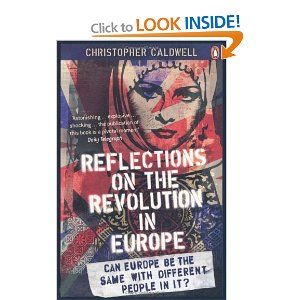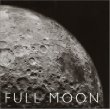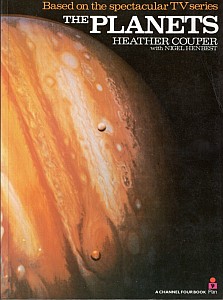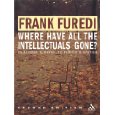The Origins of the Second World War by A. J. P. Taylor
Vanity publication by partly-awakened fellow-travelling Fellow and propagandist, 23 Oct 2010
Removed from Amazon.com
*VERY LONG REVIEW - APOLOGIES!*
Taylor was born in 1906, in odd circumstances, in Lancashire. Online biographies state 'His wealthy parents held strongly left-wing views, which he inherited. His parents were both pacifists who vocally opposed the First World War, and sent their son to Quaker schools as a way of protesting against the war.' His mother had at least one lover, Henry Sara 'a founding member of the Communist Party of Great Britain'. Nothing much is said about Taylor's (putative?) father. All this is consistent with his parents, or real parents, being Jewish - note for example the code words 'pacifist', 'left-wing', 'Communist', and the non-Christian school; and his accent wasn't Lancashire or Yorkshire. Family money seems to have allowed Taylor to hang around Oxford without a position. Later, Pribram and Namier, both Jewish historians, 'mentored' him. Even his biography is by a Jew (Sisman; there's another by K Burk who may or may not be). Without putting huge emphasis on all this, it is entirely consistent with Taylor's fierce anti-Germanism, and support for 'Russia', the Jewish-controlled USSR. Late in life he published a rather omissive introduction to an English translation of the Communist Manifesto - his introduction says nothing about divisions within states such as Jews exemplify; only class is considered. He was never as far as I can tell a technical Marxist - nobody intelligent can believe in the 'labour theory of value' or that 'all history is class war'. Taylor was a 'fellow traveller' - the 20th century fashion was to hush up such things.
Part of the key to Taylor is simply his personal news background. Let's review events:--
The coup in Russia ('Revolution') occurred when Taylor was 9 years old. By 16, Taylor had lived through the period of the greatest growth in Labour votes. When he was 17, the BBC radio monopoly was granted. When 18 (1924), the first Labour Government was formed, though a minority one. Taylor must have been aware of the Jewish/ Communist connection, and may well have known Labour was compromised from the start. (Taylor never cleared up the confusion between 'socialism' and 'communism', the latter being the Jewish fake version. This suited Conservatives - Thatcher for example - who could pretend that socialism was identical to rule by a small racist cult. Obviously too Taylor ignored the socialist component of the NSDAP).
Taylor went 'up' to Oxford in 1924 to study history. A year later he visited the Soviet Union, presumably as a CPGB hanger-on. He graduated aged 21, but had no academic position. When he was 23 Labour formed a majority in the general election. At the same time the 'great crash' took place, until say 1933. Taylor must have been impressed by Keynes, as the 'spending out of depression' idea occurs often in his books. The BBC started its 'empire service' about this time. A typical event (Taylor now 28) was the Daily Mail NOT running the headline 'Jews threaten the press'. When Taylor was 30, the 'Scott Trust' was set up, relative to the Manchester Guardian, essentially a profit-making fund to promote Jewish attitudes.
The point here is that Taylor's general information on world affairs came through radio and newspaper presentations of the time, but supplemented by Jewish connections. Clearly much material was unknown or omitted by these state, cult and commercial pressure groups. Possibly Taylor or his family kept newspaper cuttings; there's a Manchester Guardian headlinesque quality to all of Taylor's writings on events he'd lived through. Taylor comments on the 'universal belief' that Germans started the bombing. But why was it universal? Obviously, because newspapers, radio, cinema newsreels, magazines, and books said so. How did Taylor know Pearl Harbour (his spelling) had been bombed? - because it was in the news when he was about 35 - old enough to follow, perhaps too young to be sceptical. How did he know Hitler and Mussolini were more or less mad, yet Trotsky should be praised highly, as Taylor did? From the media, but partly from his contacts. Why did he believe Hacha was summoned by Hitler? How did he know opinion in the USSR could be moulded at a nod? How could he believe the US and USSR 'asked only to be left alone'? (Naivete was common - Keynes was bemused at the screaming anti-Germanism in the US press AFTER 1916, imagining it was natural to all Americans).
Taylor was 33 when he (no doubt) heard Chamberlain on the radio in the morning: [Sept 1939] '.. no such undertaking has been received..'. From 1939-1945: Taylor was some sort of writer/propagandist. He was always very anti-German - they were wicked, arrogant; Germany was 'too large' etc; he'd written WW1 was worth it to drive the Germans out of conquered territory - though like many other fierce scribblers he preferred to leave others to die, for example on the barbed wire.
It's unclear how fluent Taylor was in German; some of his translations are odd; and there are virtually no quotations from Hitler, or any other German, in his works - yet surely if he had been fluent, he could have noted supporting detail from speeches and German newspapers. His '
Habsburg Monarchy' was published in 1948; it seems hardly credible Taylor could have invesigated Hungarian and other archives. I assume this book is simply taken from other sources, no doubt mainly historians. Up to the age of 50 Taylor taught unfortunate undergraduates, and turned out book reviews on German-related issues. He said (in '
Second Thoughts') it was in this stage of his life that he developed doubts as to whether Hitler had been a diabolic genius planning war. (Taylor doesn't say whether his diabolic genius included final defeat). Rather oddly, Taylor had a belief that a 'trained historian' could see below the everyday crust of life. He seemed to think it a technical skill - like a structural engineer, or chemical analyst. It's tempting to think he imagined himself a Sherlock Holmes, or just possibly a Trotsky, at least when 'Trotsky' was in writing mode. Taylor claimed historians 'want a high standard of proof' - understandably he gives no evidence. In fact Taylor's scholarship was feeble: he says for example '
Mein Kampf' was mostly about 'anti-Semitism', when in fact it largely looks at the innumerable border disputes around Germany - the sea shore was almost the only uncontested zone. Taylor, as was the fashion, doesn't mention the Jewish role in the defeat of Germany in 1919, nor the blockade and starvation - enough to make anti-Jewish feeling entirely reasonable. Many Taylor pages go by without footnotes to indicate the source. He says of historians 'none escaped its influence' of
Die Grosse Politik [documents on WW1 origin]. His essay on the rise and fall of diplomatic history (1950s) comments on absence of military service records; and he seems just about aware of the absence of military-industrial and financial material. Most of his sources are edited selections of papers, presumably typeset - giving plenty to scope to remove embarrassing material. He said of Nuremberg, 'of course the documents are genuine', which says something about his standards of scholarship.
Anyway, aged about 50, in 1957 Taylor became famous. The Regius Professorship of 'Modern History' at Oxford became vacant when someone called Vivian Galbraith retired. Several people were suggested as candidates - including someone called Lucy Sutherland, Hugh Trevor-Roper who'd written a short work on Hitler's death, and Taylor. At the time professors were few in number; these days they are ten a penny. Taylor seems to have considered himself a worthy candidate. For some reason, probably a Jewish connection, this was made a newspaper headline issue. Possibly the chosen wanted a sleeper. Bear in mind Regius Professors are of virtually no public interest - their complete list of names has an effect reminiscent of names of, for instance, past Archbishops of Canterbury.
(Trevor-Roper was elected and spent his life writing on post-medieval church figures, English gentry, Philby - his book says nothing about the actual secrets involved - until, like Bullock, he was added to the House of Lords as Lord Dacre. Dacre seriously believed Greek and Latin was the ideal training for Britain's 19th century public school empire builders. The low point of his career was his failure to detect the elementary forgeries of the 'Hitler Diaries'. Dacre believed the fraud of what became named 'the Holocaust' for the whole of his life).
--------------------
In 1961 (Taylor aged 56) '
The Origins of the Second World War' was published. Much of the bibliography was 1940s volumes, mostly printed edited selections from diplomatic archives (so handwritten additions etc could be concealed) plus a few memoirs and general books. Bear in mind the Second World War started, and remained for a long time, a war only involving Germany, France, and Britain. There was some media excitement, but as always it's hard to tell how synthetic it was. In 1963 Taylor added a new preface, '
Second Thoughts', which he never updated; this included material on the meaning of the word 'plan', and on Trevor-Roper.
Why did Taylor write this book? Taylor was the author of some dull books on German history, and many reviews of mostly dull books on history; and he taught the period to students who hadn't been born when it started. He didn't like Germany - he was like a man who hates snakes but has ended up a herpetologist. Is it possible that he might have tired of being a rent boy, and decided to strike out into controversy? Maybe he read Gibbon's autobiography; who knows. Maybe someone he respected caused him to reconsider, up to a point; Bertrand Russell's '
Which Way to Peace' (1936) as an 'appeaser', for example. Anyway, here are some notes on '
The Origins...':-
FIRST CHAPTER - The 'forgotten problem' was how WW2 started. He says historians of WW1 only examined the lead-up to the war; while WW2 historians only examined the battles. What Taylor omits is what may be the genuine reason, the cowardliness of 'scholars'. Avoiding 1914 to 1939 means
inter alia - Nothing on the Balfour Declaration; nothing on the Lusitania trick to get the US into war; nothing on blockade and starvation; nothing on Jewish funding of the new Soviet Union; nothing on famine in the USSR; nothing on hyperinflation in Europe; nothing on Hitler's monetary policy; nothing on secret industrialisaiton of the USSR by European and American companies, with Jewish money and Russian slave labour.
THE HALF-ARMED PEACE - An astonishing bit of nonsense from Taylor is this: '...the British.. bombing of Germany.. did more harm themselves than to the Germans - .. it used up more British men and materials than it destroyed German.'
THE WAR OF NERVES: '..Soviet Russia was truly cut off from Europe so long as the cordon sanitaire existed.'
'without doubt' they regarded all foreign powers with intense suspicion, and Soviet policy's prime motive was 'the desire to be left alone.' Astonishing really; Taylor had actually met the Soviet Trade Minister!
LAST CHAPTER - DANZIG: frenetic account of pre-Poland; the book stops with Hitler invading Poland. This is assumed as per Chamberlain to be the start of the war. But all the other treaties had been discarded or ignored - why not that as well?
Taylor's book's most obvious omission is his treatment of the USSR - the necessity for Germany to do something isn't mentioned by Taylor, undoubedly because of the Jewish connection. Then there's the Versailles Treaty; Taylor mentions German objections but without taking them seriously. Another problem of course is Taylor's ignorance or suppression of specifically Jewish issues, such as their influence in the USA, the currency issue, the post-war Anglo-Jewish war, and what was not then called 'the Holocaust' about which Taylor seems a bit ambivalent. The German/Polish border disputes which played a key part are missed out; Taylor seems to have consulted no Polish archives. It's now known that Churchill, bankrupted by the Crash, kept Chartwell by being paid to be anti-German, and her started the bombing of civilians against Germany to force Hitler into war with Britain, something he didn't want. Taylor must have been aware of speculation about all this, but had no technical apparatus to allow for fuzzy information. Incidentally Taylor has no idea about intelligence; nor does he have any feeling for the desire of military people for empire building, even with no purpose. There's much more - Lindemann giving high estimates of German arms, questions over reparations, Poland and Russia in WW1, numbers of fighters and bombers but unawareness of what these could do, 'gas chambers', the Hossbach Memorandum: A J P Taylor was proud of noting the nothingness of this memorandum, but has no methodology to assess many other documents which were touted (or unmentioned).
--------------
Taylor's often-praised writing style is worth a mention. I think the praise is unjustified; his joky asides are rather like cartoons in the middle of dull propagandist tracts. His writings typically consist of a mixture of [1] Anti-German comments; though sometimes these are varied by comments anti-other powers. [2] Ridiculous claims that he is free of value-judgments or that historians have mysterious gifts. [3] Fast-moving passages, like action thrillers, but in a diplomatic sense; much of the last chapter, leading up to the German invasion of Poland, is in this mode. It's not unlike the chase scenes and cliff-hangers in films, and has the same effect in suspending thought. [4] Personification of states, and also casual lack of interest in alliances - if A decides to ally with B, there must presumably be endless small print about obligations and duties and risks, but Taylor only takes the most superficial view. His book ends with Poland's invasion, and yet Taylor doesn't consider why Britain should have declared war - he's perfectly aware the 'guarantee' with Poland was unworkable, and anyway all the other alliances had been ignored. [5] Philosophical and historical generalisations - these are the supposed gems in his works. These are always after-the-event; the fact appears to be that Taylor had no predictive skill whatever. [6] Assumptions on military and other power which seem to have no sound basis. The German who remarked that the Second World War was like Germany playing chess with odds of a rook down illustrates what Taylor lacks. Taylor assumes, for example, that the Russian steppes etc would be an asset; but he also states Hitler made no survey of resources of eastern Europe. So how can Taylor be sure it would have been a net asset for Germany? Maybe they only had disposable labour as exploited by Americanised Jews.
Anyway, it worked for Taylor - he had TV exposure, fame, and a house in Highgate which he said was 'nearly perfect'. But his last books illustrate his limitations: '
How Wars Begin' and '
How Wars End' are the same old same old - European wars in the last few centuries, nothing about the rest of the world. Anyone wanting general observations on wars, from a 'trained historian', will look in vain. And it worked for his handlers - his book helped head off serious researchers. For example, in the same year as '
The Origins..', Hoggan's '
The Forced War' gave far more detail on Poland, and Irving's '.
. Dresden ..' forced some reality into considerations of bomb damage. But Taylor could be pointed out as the only official 'revisionist' - he was the tolerated house radical.
Three stars because this book carries some lessons, though they are tiresome to unearth. A lesson external to the book is of course the utterly pitiful standard of historical research in Britain in the 20th century. Three stars also because very many other books were much worse.










